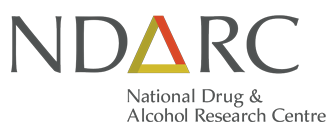
Breaking the Ice is a free, confidential, self-guided online intervention program for people who are using crystal methamphetamine (ice). The program is particularly recommended for young adults (aged 16-25) but can be used by people of any age.
Breaking the Ice is designed to help participants identify any problems associated with their use of ice, in areas such as health, work, relationships and money; and consider the impact of making changes to their ice use, like quitting completely, reducing use, or using in a less risky manner.
Breaking the Ice is made up of two modules and uses motivational interviewing and cognitive behaviour therapy methods. Participants are required to register using an email address, password and phone number. The program can be completed over several sessions.
To register and use the Breaking the Ice program, click here.
Evidence for breaking the ice
Breaking the Ice was developed by researchers at the National Drug and Alcohol Research Centre, University of New South Wales, the Australian National University and the National Drug Research Institute, Curtin University. It has been evaluated in a randomised controlled trial, the results of which can be found here. People who did the online breaking the ice intervention did not reduce their stimulant use more than a wait-list control group, but they were more likely to seek help and had fewer days out of role.
Researchers hope to continue to develop and improve this program as an online treatment for ice use, and your thoughts and feedback would be appreciated in helping them to do this. Please provide feedback using our online form.
Further assistance for ice use
For information on other services available please contact the National Alcohol and Other Drug Hotline: 1800 250 015.
Download the “On Ice” brochure, providing information about ice use and associated harms for consumers.
Up-to-date information and resources about ice are also available at Cracks in the Ice, an online toolkit for the Australian community.
For emergency support, call Lifeline on 131 114 (a free and confidential 24-hour crisis helpline) or dial '000' for an ambulance or police.
Fact sheets
Researchers at the National Drug and Alcohol Research Centre
- Overview
- News
- Our team
- References




